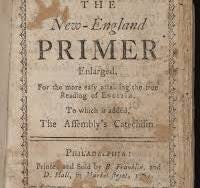08.06.2024
Bike lane craziness | Housing construction hits new low in Boston | Spending your money the easy part at the State House | Gas pains derail climate bill | Winthrop latest to rebel against state housing law | Did the Fed blow it? | Mountain of debt crushing nation’s largest local newspaper chain |
News tips? Story ideas? Email us at sbvanvoorhis@hotmail.com
Political cowardice? Amid fierce lobbying, Mass. lawmakers whiff on tough measures to prevent waste of billions in new housing and ed dollars
The state’s Democratic-controlled Legislature has no problem spending boatloads of your money.
But when it comes to passing low budget but controversial measures to ensure that billions in taxpayer dollars don’t end up circling the drain, House and Senate leaders and their minions are no profiles in courage.
Beacon Hill ended its two-year legislative session last week with an epic spending spree, forking over billions to spur construction of thousands of new apartments and homes, make community college free, and subsidize early ed programs.
Just take the $5 billion housing bond bill just signed into law by Gov. Maura Healey, which has money for everything from rebuilding decrepit public housing to spurring the construction of new market-rate apartments and homes.
For all the money that it spends, the bill does little to tackle the stifling local rules and regulations that make it so costly to build - and ultimately buy and rent - in Massachusetts.
Yes, it will now be easier to build granny flats or in-law apartments. But proposals to require towns across the state to open their doors to new apartment development and to crack down on onerous septic system rules never had a chance.
The same pattern can be seen in education, where hundreds of millions will be spent over the next year on both early education and making community college free, which alone will cost more than $117 million.
Yet the House and Senate quietly sidelined a proposal that would require school districts across the state to adopt science and evidence-based methods of teaching reading.
This is a big deal, with just 42 percent of Massachusetts third graders currently able to read proficiently, a number that drops to less than 30 percent in Boston.
The culprit? The continued persistence of teaching methods that stress a “whole language” approach that encourages students to guess at the meaning of words through the use of picture books.
That has led to a big rise in students struggling to read even in wealthy, high-performing school districts like Winchester and Lexington.
Lawmakers did pass a $20 million provision that will help districts to implement evidence-based methods of teaching reading, though it was considerably less than the $30 million Gov. Maura Healey proposed.
Overall, such evidence-based literacy instruction emphasizes the use of phonics, a teaching practice whose roots go back to the New England Primer of 1690.
But state lawmakers struck out completely when it came to mandating that all districts use such sound and time-honored methods to teach students how to read - one of the most basic building blocks of a child’s education.
“If you are not teaching kids how to reach by third grade, no one will be going to community college,” said one prominent supporter of the literacy push and its connection with the Legislature newly minted plan for free college.
So what’s stymying these crucial bills?
When it comes to housing, municipal leaders have lobbied long and hard to prevent state reform of onerous local zoning rules, which, after all, are their rules.
On education, the Mass Association of School Committees and the Massachusetts Teachers Association both helped keep the literacy bill stuck in the Legislature.
“It is with great relief that we can say the ‘evidence based literacy’ bill is DEAD for this session,” tweeted Tracy Novick, field director of the Massachusetts Association of School Committees.
Given that the teachers union has been promoting teachers strikes and clashing bitterly with school committees across the Boston area, it’s clearly an alliance of convenience.
File under: Strange bedfellows.
Thirty lashes with a wet noodle: Globe columnist Brian McGrory takes Boston to task - ever so gently, while being careful to absolve the mayor - over city’s proliferating bike lanes
Why does the Globe so clearly feel the need to be practically apologetic when saying anything remotely critical of Boston Mayor Michelle Wu?
Former Globe editor Brian McGrory’s column on Monday chiding City Hall - but not Wu - for having the gall to “crowbar bike lanes” onto his favorite street is the latest example of the paper’s careful tip-toeing around the very sensitive mayoral ego.




